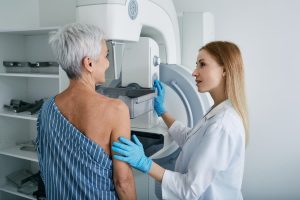
What We Can Learn from the Increase in Prostate Cancer
Recent research has caused many healthcare professionals to reconsider their approach to screening men for prostate cancer. That’s because the disease (already the second most
HIPAA Alert: Potential Data Breach Learn More
Questions on Oncology, Hematology and/or Infusion Clinical Services due to COVID-19 Crisis – CALL 833-698-1623
Important Information for Our Patients Regarding the Coronavirus.
RCCA Providing Area Cancer Patients with Access to Care During Coronavirus Outbreak
RCCA Offering Patients Virtual Visits During Coronavirus Pandemic
Just as there are several types of testicular cancer, there are multiple effective approaches for treating the disease. The expert oncologists/hematologists of Regional Cancer Care Associates offer compassionate, personalized cancer care to people in New Jersey, Connecticut, Massachusetts, and the Washington, D.C., area who are dealing with cancer or blood disorders. For those who have been diagnosed with testicular cancer, RCCA oncologists can offer second opinions, determine testicular cancer stages, and develop and implement personalized testicular cancer treatment plans.
The process of formulating an individualized treatment plan involves many steps. Following diagnosis, oncologists will “stage” the cancer, drawing on results from evaluations including physical examination, bloodwork, imaging studies, and biopsy to determine the nature and extent of the cancer. This information is critical in identifying the optimal treatment approach for a particular patient.
There are four main stages of testicular cancer:

Based on the cancer’s stage, the patient’s age and overall health, and other consideraitons, oncologists will choose from a wide range of therapeutic options in developing a comprehensive treatment plan. In many cases, a patient will receive more than one therapy, such as surgery followed by radiation or chemotherapy. In other circumstances, such as when the cancer is sown to be a slow-growing type, oncologists and their patients may opt to start with “active surveillance,” which entails closely monitoring the patient at regular intervals rather than starting treatment right away. However, if the cancer is a more-aggressive type or has spread beyond the testicle, treatment will be initiated. Options include:
Testicular cancer surgery may be performed to remove the testicle, the spermatic cord, and any tumors or affected lymph nodes.
Doctors will use localized radiation therapy to kill cancer cells in the testicle and within lymph nodes.
Powerful drugs are taken intravenously or by mouth to kill cancer cells, in chemotherapy treatments.
With targeted therapy, drugs are used to specifically target cancer cells, leaving healthy cells unaffected.
The oncologists of Regional Cancer Care Associates provide whole-person care. In part, this means that they have extensive experience and practical approaches for helping patients deal with the side effects of chemotherapy or other treatments. Regional Cancer Care Associates also provides support with everything from coping strategies to information on participating in clinical trials.
According to the American Cancer Society, patients with localized testicular cancer have a 99% five-year relative survival rate. By contrast, patients with testicular cancer that has spread to distant parts of the body have a 73% five-year relative survival rate. Because of the importance of early diagnosis highlighted by those statistics, the oncology specialists of Regional Cancer Care Associates encourage awareness of testicular cancer symptoms, as well as regular self-examinations. An appointment with a primary care practitioner is an essential first step after noticing any of the following:
Several factors have been shown to increase the possibility of developing testicular cancer. Of course, these risk factors do not guarantee the development of testicular cancer, but they do provide reasons for extra vigilance. Here are some of the most common risk factors for testicular cancer:
According to the American Cancer Society, patients with localized testicular cancer have a 99% five-year relative survival rate. By contrast, patients with testicular cancer that has spread to distant parts of the body have a 73% five-year relative survival rate.
Patients can obtain additional information about their testicular cancer diagnosis from the experienced doctors of Regional Cancer Care Associates. At RCCA’s 25 community-based care center throughout New Jersey, Connecticut, Massachusetts, and the Washington, D.C., area, highly experienced, compassionate oncologists and hematologists offer patients the latest evidence-based treatments for testicular cancer and other cancers and blood disorders. Visit one of the many locations today for more information or contact us to learn more.
Regional Cancer Care Associates (RCCA) offers high-quality, comprehensive and advanced treatment close to home. At RCCA, you’ll be treated by experts who are part of one of the largest cancer care networks in the country. We focus on every patient, individually, and work with you and your family to make sure your care is second to none.
For more information, or to schedule an appointment, call (844) 346-7222. You can also schedule an appointment by calling the RCCA location nearest you.

Recent research has caused many healthcare professionals to reconsider their approach to screening men for prostate cancer. That’s because the disease (already the second most

Just thirty minutes is all that is needed to help detect early signs of breast cancer. This is the amount of time a standard mammogram

The National Cancer Institute defines targeted therapy as “a type of cancer treatment that targets proteins that control how cancer cells grow, divide, and spread.”
When standard cancer treatments aren’t providing the results you want, clinical trials may offer hope. Our physicians use clinical trials to study new treatments, helping transform cancer care for the better. You can enroll in a clinical trial to try groundbreaking treatment plans at zero cost to you.

Regional Cancer Care Associates is one of fewer than 200 medical practices in the country selected to participate in the Oncology Care Model (OCM); a recent Medicare initiative aimed at improving care coordination and access to and quality of care for Medicare beneficiaries undergoing chemotherapy treatment.